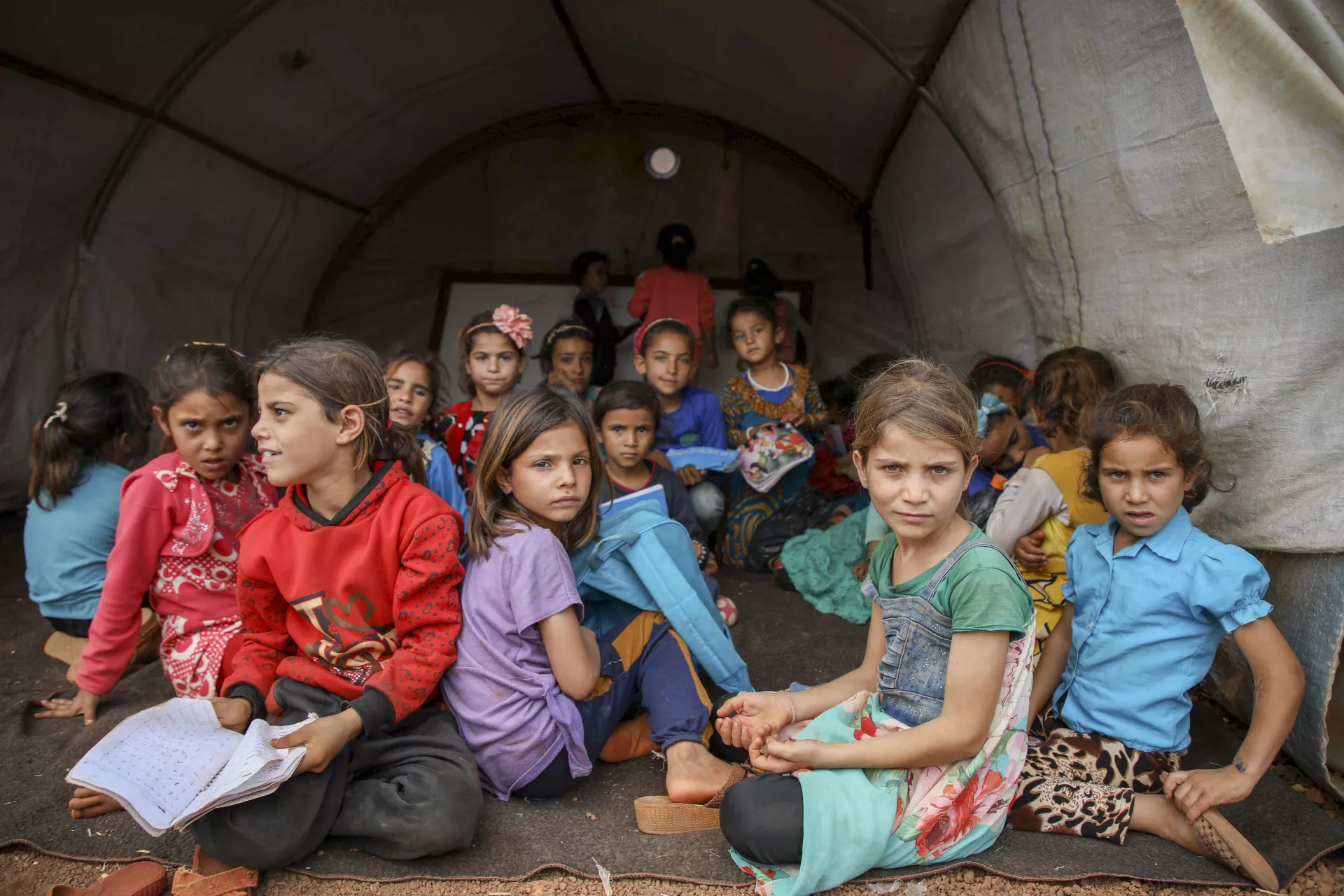
Sweeping international sanctions imposed on Syria continue to obstruct the country’s reconstruction and the restoration of essential services, Human Rights Watch (HRW) said in a report released yesterday, Feb. 18. The report criticizes the sanctions—imposed by the US, the EU, and the UK—as lacking clear conditions for removal, despite the fall of the former regime of Bashar al-Assad. HRW argues that these restrictions exacerbate the suffering of millions of Syrians struggling to access necessities such as electricity, healthcare, and clean water.
Impact on Infrastructure & Basic Services
Thirteen years of war and displacement have devastated Syria’s infrastructure, leaving entire towns uninhabitable and critical public services in disrepair. According to HRW, more than 90% of Syrians live below the poverty line, with over 13 million people unable to afford or access adequate food. At least 16.5 million require humanitarian assistance to meet basic needs.
The destruction extends to hospitals, schools, roads, water facilities, and electrical grids, worsening the country’s economic crisis. The UN Children’s Fund estimates that two-thirds of Syria’s water treatment plants, half of its pumping stations, and a third of its water towers have been damaged since 2011. The education system is similarly strained, with more than 7,000 schools damaged or destroyed, leaving nearly 2 million children out of school.
“Syria is in desperate need of reconstruction, and Syrians are struggling to survive,” said Hiba Zayadin, a senior Syria researcher at HRW. “With the collapse of the former [regime], broad sanctions now stand as a major obstacle to restoring essential services such as healthcare, water, electricity, and education.”
Restrictions on Trade & Banking
The sanctions, initially targeting the former regime and its officials, include financial and trade restrictions that limit Syria’s ability to access global markets. The US enforces the most stringent measures, banning nearly all trade and financial transactions with Syria, including the export of US goods, software, and services. The Caesar Act extends these restrictions by sanctioning foreign entities that do business with Syria, particularly in oil, gas, construction, and engineering.
The EU sanctions focus on banning the purchase of Syrian crude oil, restricting investments, and preventing Syrian banks from accessing European financial institutions. Additionally, they prohibit transactions with designated individuals and state-owned enterprises, including the Central Bank of Syria and major telecom and airline companies. The UK’s sanctions closely mirror those of the EU.
HRW emphasized that the broad application of these sanctions has fueled inflation, depleted essential goods, and created significant financial and trade barriers that humanitarian exemptions have failed to meaningfully address. Financial institutions and businesses, fearing legal risks, have been reluctant to engage in Syria, further impeding economic recovery.
Limited Adjustments & Continued Challenges
Western governments have made only minor adjustments to sanctions despite the changing political landscape in Syria. In January 2025, the US authorized limited energy and remittance-related transactions, while the EU proposed a conditional plan to ease restrictions. The UK announced forthcoming amendments, but details remain unclear.
Ayman Hamawiye, the head of Syria’s Investment Agency, criticized these steps as “inadequate,” telling Reuters that ongoing restrictions on Syria’s banking sector prevent critical investment and economic recovery. Reconstruction costs are estimated to exceed $250 billion, spanning infrastructure, essential services, and economic revitalization.
The healthcare system remains in crisis, with more than half of Syria’s hospitals nonfunctional and severe shortages of medical supplies. Water infrastructure is critically damaged, contributing to waterborne diseases and limited access to clean drinking water.
Calls for Policy Changes
HRW urged sanctioning entities to prioritize the well-being of Syrian civilians by lifting restrictions that hinder access to basic rights. The organization called for reintegrating Syria into global financial systems, easing trade restrictions on essential goods, and addressing energy sanctions to ensure fuel and electricity access.
The organization also emphasized the need for clear legal assurances to financial institutions and businesses, warning that overcompliance with sanctions has created a “chilling effect” that discourages humanitarian and commercial engagement.
“Rather than using broad sectoral sanctions as leverage for shifting political objectives, Western governments should recognize their direct harm to civilians and take meaningful steps to lift restrictions that impede access to basic rights,” Zayadin said. “A piecemeal approach of temporary exemptions and limited waivers is not enough. Sanctions that harm civilians should immediately be lifted, not refined.”
HRW maintains that while sanctions can serve as a tool to deter human rights abuses, they should not inflict disproportionate suffering on civilians. The organization stressed that any sanctions should be tied to clear, measurable, and attainable conditions for removal, with regular assessments to ensure they align with human rights objectives.








